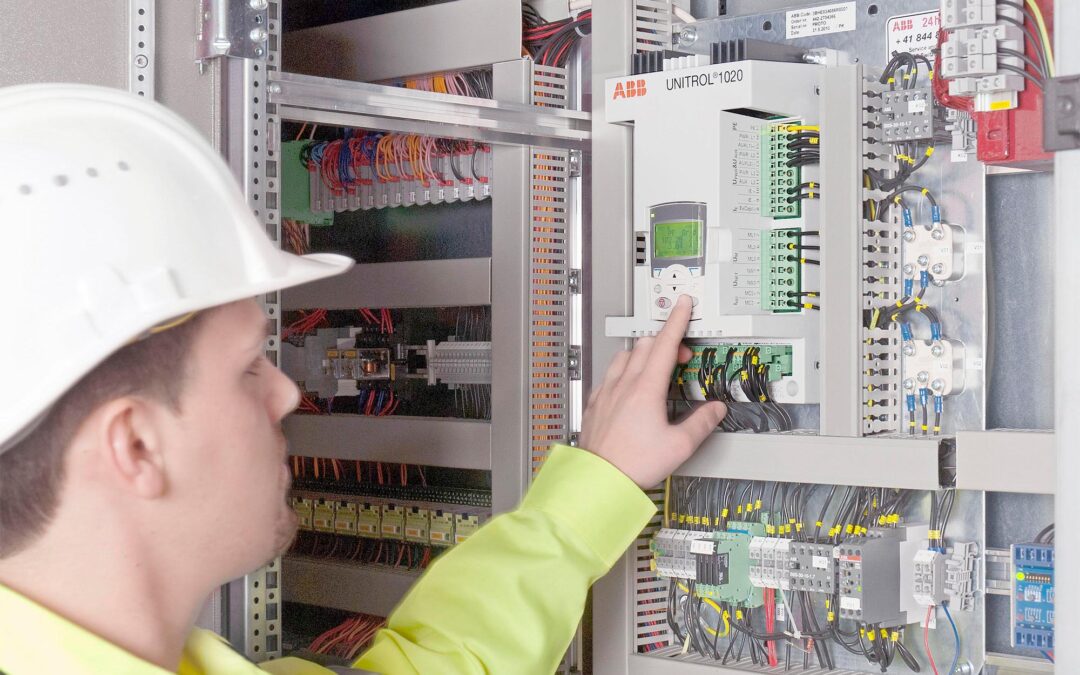Power system studies help identify potential issues that could compromise safety, operational efficiency, and reliability. They are essential in guiding engineers and decision-makers in designing, upgrading, and maintaining systems for optimal performance. In this blog, we’ll explore the importance of power system studies for EV charging infrastructure, the various types of studies conducted, and how electrical supply companies can expedite this process by providing certified engineers to complete these studies faster. Let’s jump in!
A Deeper Look Into Power System Studies
These studies involve a series of calculations, simulations, and assessments to ensure that the system’s electrical network can handle expected loads and conditions safely and reliably. Power system studies often include fault analysis, load flow analysis, short-circuit studies, arc flash assessments, and more.
In the context of EV charging infrastructure, power system studies help determine whether the existing power network can accommodate additional charging stations or if upgrades are necessary. They ensure the system complies with industry standards and safety regulations and mitigates the risk of power failures or safety hazards.
The Importance of Power System Studies for EV Charging Infrastructure
With a growing number of EV charging stations, the electrical systems powering them must be safe and reliable. Power system studies offer numerous benefits:
- Safety: As high-power EV chargers are installed, the risk of electrical faults increases. Power system studies help identify potential hazards and recommend measures to mitigate them, ensuring the safety of both the public and the infrastructure.
- Supporting System Reliability: Power interruptions or equipment failures can lead to significant downtime, impacting EV drivers and revenue. These studies help create reliable systems capable of sustaining high-demand loads without disruptions.
- Enhancing Efficiency: Studies allow engineers to optimize the system, making it more efficient in energy distribution and reducing losses that would otherwise increase operational costs.
- Compliance With Regulations: Regulatory bodies often require certification for power systems, and studies provide the documentation necessary to meet these standards. Compliance is especially crucial for public EV charging stations that operate in high-traffic areas.
Types of Power System Studies Essential for EV Charging Infrastructure
Each power study examines a specific aspect of the electrical network. Here’s an overview of the most relevant studies for EV charging infrastructure:
Load Flow Analysis
Load flow analysis evaluates an electrical system’s voltage, current, power, and losses under steady-state conditions. This study helps determine if the system can handle the power requirements of EV charging stations without compromising stability.
- Benefits: It ensures that the system has the capacity for additional charging stations and optimizes the distribution of power, reducing the risk of overloading the network.
Short-Circuit Analysis
Short-circuit analysis assesses the potential impact of faults, such as short circuits, on the system. This study calculates the fault current, which helps in selecting the appropriate protective devices and circuit breakers for safety.
- Why It Matters: EV charging stations are vulnerable to faults due to the high power they handle. Short-circuit analysis ensures that the protective measures can withstand and isolate faults, reducing the risk of equipment damage or fires.
Arc Flash Hazard Analysis
Arc flash hazard analysis evaluates the potential for dangerous arc flashes within the electrical system. It calculates the incident energy levels and helps determine the proper personal protective equipment (PPE) needed for technicians.
- Applications in EV Infrastructure: Arc flash risks are heightened in high-power systems like EV charging stations. This analysis is critical to protect workers and to comply with safety regulations for electrical maintenance.
Coordination Study
A coordination study examines the timing and selectivity of protective devices, so they operate in harmony to isolate faults quickly and minimize the impact on the rest of the system.
- Benefit: For EV charging systems, proper coordination prevents widespread outages by ensuring only affected sections of the network are isolated during a fault.
Harmonic Analysis
This study assesses the effects of non-linear loads, which are common in EV chargers. Harmonics can lead to equipment overheating, malfunctions, and reduced efficiency.
- Relevance for EV Charging: As EV charging networks expand, harmonic analysis helps engineers design systems that prevent these issues, prolonging equipment life and maintaining operational efficiency.
Identify any inefficiencies and make your charging infrastructure more powerful with Lonestar’s expert studies.
5 Challenges in Conducting Power Studies for EV Charging Infrastructure
While power system studies are essential, conducting them can be complex and time-consuming. Several challenges can slow down the process:
- Availability of Qualified Engineers: Studies require engineers with specialized knowledge and experience in power systems, and demand for these professionals is high. This scarcity often leads to delays.
- Data Collection: Accurate data on electrical loads, transformer ratings, and system architecture is crucial for reliable results. Gathering this data from various sources can be challenging, particularly for complex EV charging networks.
- Time Constraints: Many businesses and municipalities face strict timelines for EV infrastructure deployment. However, comprehensive power system studies can take weeks or even months, potentially delaying the project.
- Regulatory Approvals: Compliance with industry standards and regulatory requirements can add additional time to the process, as each study must meet specific criteria to be approved.
- Evolving Technology: As EV technology evolves, so do the requirements for supporting infrastructure. Engineers must stay updated on the latest industry standards, charging methods, and best practices to ensure system safety and reliability.
Best Practices for Businesses Conducting EV Charging Studies
For businesses involved in EV charging, adopting best practices can further expedite the process for the most reliable results. Here are some tips to keep in mind:
1. Start With a Pre-Study Consultation
Consulting with an electrical supply company early on can help define the scope of the study, assess the existing infrastructure, and identify potential hurdles before the formal study begins.
2. Prioritize Data Collection
Providing engineers with accurate data is crucial to achieving reliable study results. Compile all relevant information on power loads, transformer ratings, distribution network, and site-specific requirements in advance.
3. Opt for Standardized Solutions
Where possible, opt for standardized components, such as modular switchgear, as they are typically easier to model and analyze. Standardization can simplify the study and reduce the likelihood of delays caused by unique configurations.
4. Invest in Scalable Infrastructure
EV demand is projected to grow exponentially, so charging stations should be designed with scalability in mind. This can minimize the need for frequent upgrades and additional studies, saving time and resources in the long term.
Conduct an EV System Charger Study With the Experts at Lonestar Integrated Solutions
We’re here to make your EV infrastructure safer, more efficient, and faster. With skilled engineers on staff, Lonestar delivers comprehensive power studies without delay, keeping your projects on track and compliant. Count on us for quick, expert assessments that support your EV charging goals.

